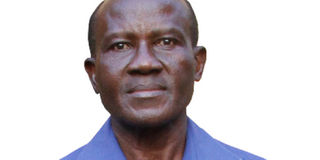Leadership chaos: Bad advisers or a tired President?

In her excitement after being appointed the minister for Kampala Capital City two years ago, Ms Beti Kamya described President Museveni as a person with such a bank of knowledge and leadership skills that Ugandans could not afford to send him into retirement.
Never mind that only a few months before, Ms Kamya had been an Opposition politician, openly castigating Mr Museveni’s rule as authoritarian and discriminative, and advancing the argument that the presidency was (constitutionally) too powerful to give space for improved governance; hence her clamour (at the time) for a major constitutional shift to federated rule.
In Uganda, a politician can swallow their words and damn their conscience and stride ahead without blinking. If the money is good, the past can be deemed not to exist.
Again, in Uganda, you can suddenly wake up and begin to condemn virtually every aspect of President Museveni’s government, but also vociferously maintain your old stand that Mr Museveni must remain in his position at all costs, and at the same time insist that it is everybody else’s brain – not yours – that works like an empty tin.
With some of the President’s staunchest supporters now describing his government as a case of multiple organ failure, it is again in Uganda where you will hear (as I heard last Sunday on Impact FM) a religious leader offering a brand new piece of God-given wisdom, that what Mr Museveni really needs is not a set of presidential advisers (of whom he already has over a hundred), but a set of ‘strategists’.
Why?
Well, according to God’s ‘apostle’, because advisers just ‘advise’, while strategists would work out the consequences of proposed government policies and actions.
Divine semantics? All right; at least the President was not diagnosed to be troubled by Bachwezi demons.
Yet only on the Sunday of July 8, our Pentecostal luminaries on Impact FM had generally leaned towards supporting the controversial taxes the President had signed into law in the 2018/19 Budget.
By the Sunday of July 15, they had turned critical because the President had somewhat backtracked on some of those taxes!
There was, therefore, a touch of (unintended?) irony when a man from Kiryandongo called into the radio talk-show programme and suggested that one of the preachers be appointed a presidential adviser.
At a distance, power may look fairly malleable in the face of reason. In close proximity, power – especially authoritarian power – can be raw, inflexible and even smell of blood.
The thousands of Ugandans who gratify themselves by playing the role of ‘presidential adviser’ habitually forget to factor in the menacing features of 32-year-old African power. They cannot properly grasp that they, too, would eventually (if not immediately) cringe under that power and begin to give only the kind of advice the President wants to hear.
Among his Cabinet, various planning officials, presidential advisers, party leaders and influential relatives, are the President’s chosen strategists. A ruler is responsible for his circle, not the other way round.
This is doubly true in Uganda, where the President clearly endorses Ms Beti Kamya’s assertion that he is wiser and more informed than all his 70 or 80 ministers lumped together, and where MPs are sometimes arm-twisted to prostitute themselves by taking money for voting to support the President’s wishes, regardless of alternative perceptions.
The now common practice of dumping blame on the President’s officials and ‘his’ MPs is itself a symptom of the fear inspired by the President; an inverted flattery of the chief instead of questioning his competence.
Mr Tacca is a novelist, socio-political commentator.
[email protected]




